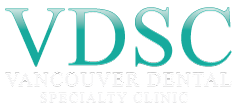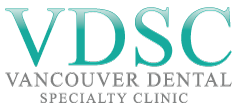
To be honest, as a clinic that specializes in dental restorations we see far too many patients than we should need to. This is because many people end up in our chair from bad habits that span beyond typical poor oral hygiene. These other practices lead to damage to teeth and gums that cause significant pain, discomfort, and aesthetic ruin. While our well-educated team is here to restore your smile without judgement, we wanted to take a proactive step towards ending dental damage by providing you with some insight into the bad habits you may be guilty of today.
5 Unexpected Things That You May Be Doing That Cause Preventable Damage to Your Teeth and Gums
1. Chewing Things That Should Not Be Chewed
In our article about how to prevent cracked teeth, guess what activity topped the list? That’s right, by chewing things that are not meant to be chewed you prime yourself not only for fractured teeth, you put yourself at risk with related conditions that include oral nerve damage, abscess growth, and more. Moving forward, stop chewing on the tips of pens/pencils (etc.), gnawing on hard candy (a double negative impact), and chomping down on the ice at the bottom of your glass. If it’s hard to bite, don’t bite it.
2. Biting Your Nails
While this is an extension of the above, it calls for its own spot on this list. Biting your nails is not only a bad practice that ruins the look of your hands while letting others witness your nervous habit, it can result in damage to your teeth, gums, and entire oral cavity. Frequent nail biting can weaken your enamel and chip teeth and can even lead to (or compound the effects of) bruxism, a condition that lead to other impactful dental disorders.
In addition, given that your hands touch many filthy surfaces throughout the day, you invite bacteria into your oral cavity by jamming your fingertips into your mouth when stress or habit induces such a behavior. Nail biters can damaged gum tissue with jagged fingernail edges and spread bacteria to the oral cavity and into the bloodstream. Not good.
3. Biting the Inside of Your Cheek
In the same vein as a nail biting habit, you may have cheek biting/chewing to contend with. This is a more undercover habit that is more common than you think. Many people assume it’s a harmless habit given that it’s relatively out of sight and mind, but the fact is subconscious and semiconscious habitual cheek biting/chewing can promote and progress oral carcinogenesis and trigger canker sores.
4. Easing Up on Dental Care During Vacations
This may fall in the general oral hygiene category, but it bears reference in today’s article. Many people may who practice great dental care at home may let things slide while on vacation and on other travels. This is a bad idea because there’s a good chance that your dietary choices also suffer when on a trip, which has a compounding negative affect on your oral health – all the more reason to afford yourself the same dental care you do when at home. In addition, travel and all that comes with it (lack of sleep, etc.) can weaken your immunity while exposing you to a greater variety of health concerns, those that can have an impact on your oral health both directly and indirectly. Any failure to perform the necessary upkeep can exasperate an underlying dental condition and given a lack of access to an adequate dentist, you could be in big trouble. When traveling, pay close attention to your oral hygiene, even more than you do when at home.
5. Excessive At-Home Dental Care
This item comes as a surprise to those of you who aggressively brush and floss in an attempt to eradicate the potential for cavities and gum disease. It turns out your DIY dental care may be going too far. Studies show that people who brush too hard, too long, and/or too frequently could be causing permanent damage to their tooth enamel and gums, the latter of which can result in gum recession and the need for immediate treatment via gum grafting or pinhole surgical technique (preferred). It’s also important to use a soft-bristled toothbrush, as you’re not doing your teeth and gums any favor by opting for some medieval scrubber. In addition, excessive use of poor quality home whitening kits can degrade your dental health, which is why you should seek counsel from a teeth whitening specialist who can provide for combined clinic and home bleaching along with proper guidance on the matter.
If you have suffered from any of the conditions addressed above, you’ll find peace of mind in knowing that not all is lost. Vancouver Dental Speciality Clinic will restore your smile and dental functions safely, effectively, and with minimal time to recovery. Contact us today at 604.336.0958 or complete the form found here.


